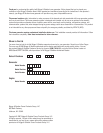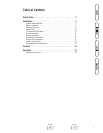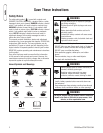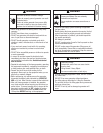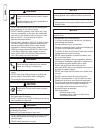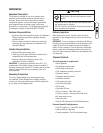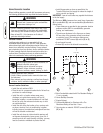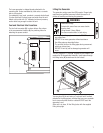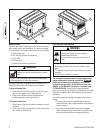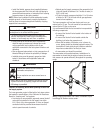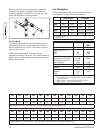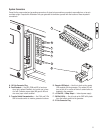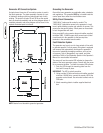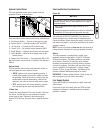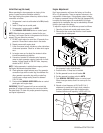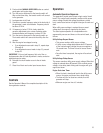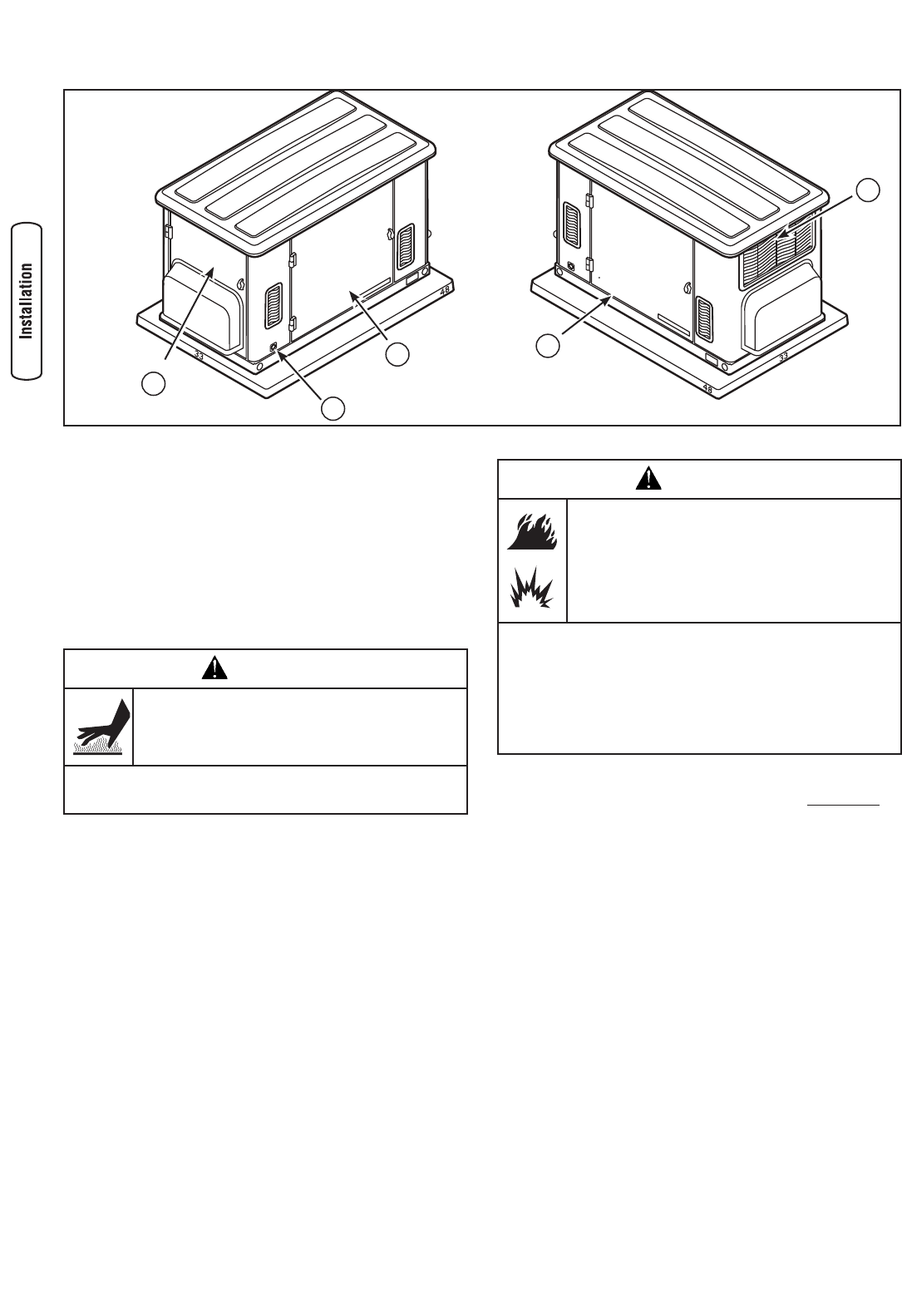
8 BRIGGSandSTRATTON.COM
Access Doors
The home generator is equipped with an enclosure that has
three access doors, as shown above. The doors are named
for a significant component located behind them, as follows:
A Control Panel door
B Fuel Inlet Port (shown for reference)
C Oil Fill door
D Oil Drain door
E Exhaust Port (shown for reference)
WARNING
Contact with muffler area can result in serious
burns.
DO NOT touch hot parts and AVOID hot exhaust gases.
Allow equipment to cool before touching.
•
•
Each home generator is equipped with two identical keys.
These keys fit the locks that secure the access doors.
To Open an Access Door:
1. Insert key into lock of access door you wish to open
and turn one quarter turn counterclockwise.
2. Grasp door’s handle and turn one quarter turn
counterclockwise to open. Remove key.
To Close an Access Door:
1. Close door and turn doors handle one quarter of a turn
clockwise.
2. Insert key into lock of access door and turn one quarter
turn clockwise. Remove key.
The Gaseous Fuel System
WARNING
Propane and Natural Gas are extremely
flammable and explosive.
Fire or explosion can cause severe burns or
death.
LP gas is heavier than air and will settle in low areas.
Natural gas is lighter than air and will collect in high
areas.
The slightest spark can ignite these fuels and cause an
explosion.
DO NOT light a cigarette or smoke.
•
•
•
•
The information provided below is to assist gaseous fuel
system technicians in planning installations. In no way
should this information be interpreted to conflict with
applicable fuel gas codes. Consult with your local fuel
supplier or Fire Marshall if questions or problems arise.
TO THE INSTALLER: Consult with the home generator
owner(s) and convey any technical considerations that might
affect their installation plans before applying these general
guidelines.
The following general rules apply to gaseous fuel system
piping:
• The piping should be of a material that conforms to
federal and local codes, rigidly mounted and protected
against vibration.
• Piping should be protected from physical damage
where it passes through flower beds, shrub beds, and
other cultivated areas where damage could occur.
B
A
C
D
E



